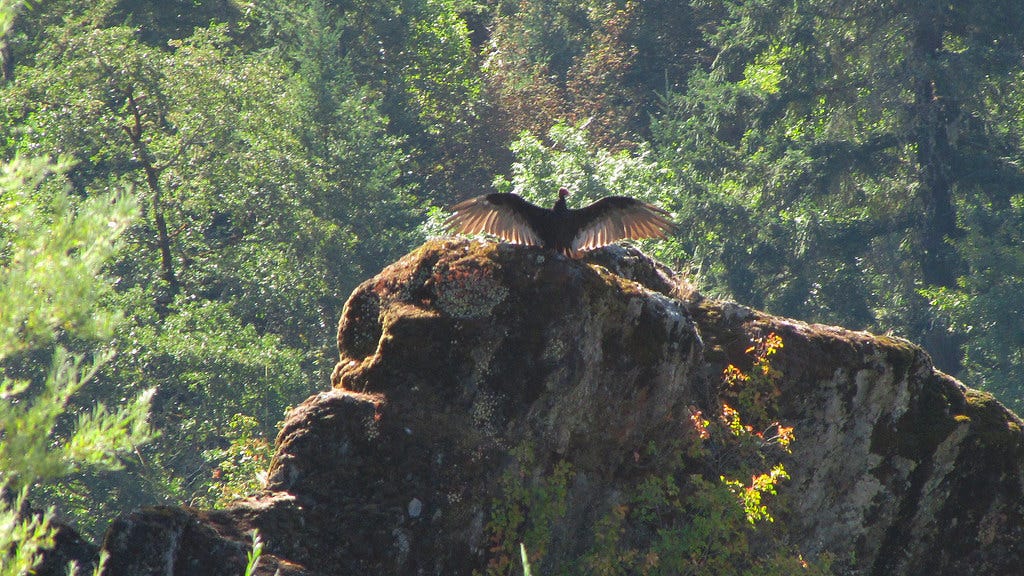Hope is a Thing With Feathers: Public Education During Pandemic
Although I am lucky to be part of a district that supports its teachers, we are still trying to find the thing that will guide us toward a successful school year, and on the most basic level: hope.
As a 7th-12th grade English teacher in a small rural school in Eastern Oregon I see many similarities between my experiences as an educator and the experiences cited in Elizabeth Miller’s Nov. 30th article for OPB.
I am a teacher who loves his school, the students who go to my school, and the staff and teachers that work at my school. And yet as an educator I feel like I’m not making the differences in my students’ lives during this pandemic that I would hope. Embedded within this feeling is an emerging hopelessness I imagine my students must also feel when confronted with learning during a time when some of their most basic needs are not being met.
On a surface level, our students, like those in Portland, are also struggling with attendance and grades. Given current statistics, low socioeconomic status schools seem to be affected most by the pandemic, which would include the high school where I work.
On a deeper level, our students are experiencing increasing rates of homelessness and involvement with the law. And this is the tip of the iceberg. Despite our focus as a school on the social-emotional needs of our students, evidenced by the work of our incredible school counselor, and hiring an intervention specialist to help us bridge school life with home life, we are confronted with multiple interventions a day outside of our subject areas that take extra care and experience to handle.
Although I am lucky to be part of a school district that supports its teachers and thinks on its feet (we are already implementing a kind of “flex” plan proposed by Portland Public Schools, albeit once a week and for a shorter time frame), we are still trying to find the thing that will guide us toward a successful school year, and on the most basic of levels: hope.
Similar to last year, we have had several Covid outbreaks and quarantines interrupt our student learning, however, unlike last year, about a fourth of our students chose to pursue on-line learning rather than wear masks at school. While this provided opportunities for new students to step up as leaders, it also means that we are currently missing a large portion of our previous school community. Add to this a slew of students who have joined and left our school and, out of the six classes I teach, only one or two have remained considerably unchanged.
When I used to teach Emily Dickinson’s poem “Hope is a Thing With Feathers,” I would cut up each of the lines and have students piece the poem back together how they think it should go. We would then look at the poem, analyzing the metaphor of the birds in our own souls, alive and singing regardless of the storms we might weather.
Now, it isn’t that I’m not so sure about hope, but it is that I’ve seen it crushed and plucked out of too many of my students and fellow staff to not take stock. What should be a bird, miraculous and almost impossible to defeat, has been facing a perilous fight with fear, division, and multi-generational trauma. This, even in the midst of focusing on resilience, self-advocacy, and empowerment.
Currently, our superintendent has begun spearheading a community-wide conversation based on Margaret J. Wheatley’s ideas about turning to one another within the community where we live to restore hope. Simple conversations about what parents, business owners, leaders, students, etc. want for our community, our school, and our students. To find that hope may still be a thing with feathers, regardless of the challenges in public education we may face.
Cameron Scott holds an MFA in poetry from the University of Arizona, is a fly-fishing guide and teaches 7th-12th grade English Language Arts.
Photo credit: "Rogue River Wildlife" by BLM Oregon & Washington is licensed under CC BY 2.0





While I didn't go through a pandemic while teaching, I went through some pretty significant upheavals while teaching middle school. Hang in there and keep hope going, Cam. Things will get better.
Thank you, Cam. For this article and what you do.